Easy Building Vocabulary worksheets activities for Ages 5-8
6 filtered results
-
From - To
Enhance your child's vocabulary skills with our engaging Building Vocabulary worksheets designed specifically for ages 5-8. These fun and easy-to-use activities help young learners explore new words through interactive tasks, including matching exercises, fill-in-the-blanks, and word searches. Perfect for homeschooling or classroom use, our worksheets are tailored to foster language development and comprehension. Kids will enjoy learning while playing, making vocabulary building a delightful experience! With colorful illustrations and diverse activities, these resources encourage creativity and critical thinking. Explore our collection now and watch your child's confidence and communication skills soar! Join the vocabulary-building journey today!
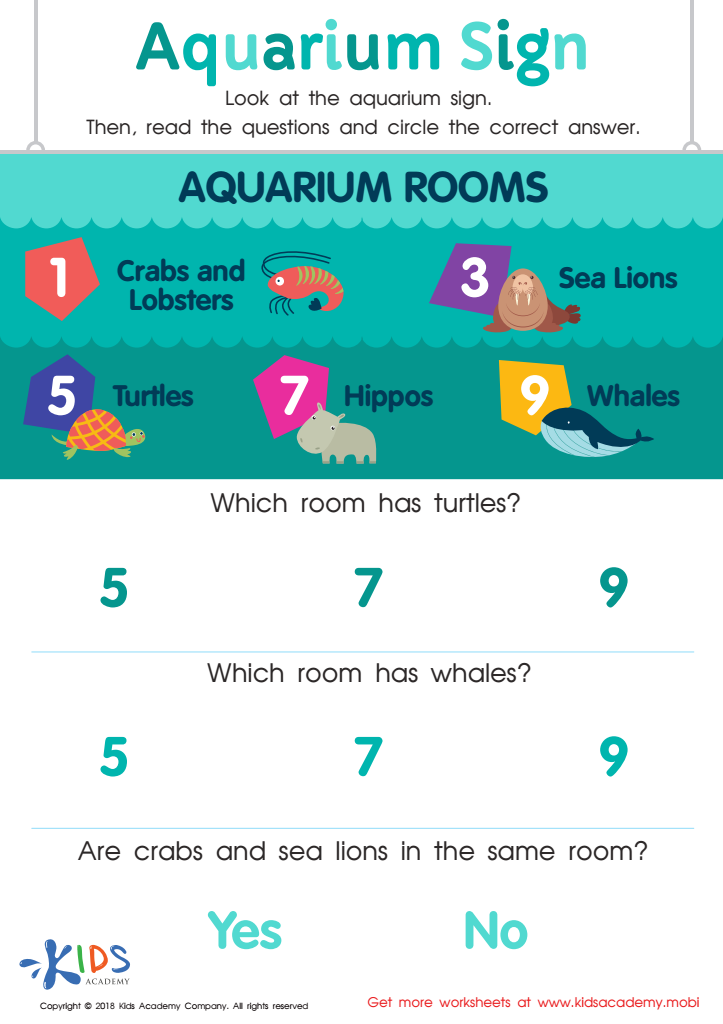

Assessment: Aquarium Sign Worksheet
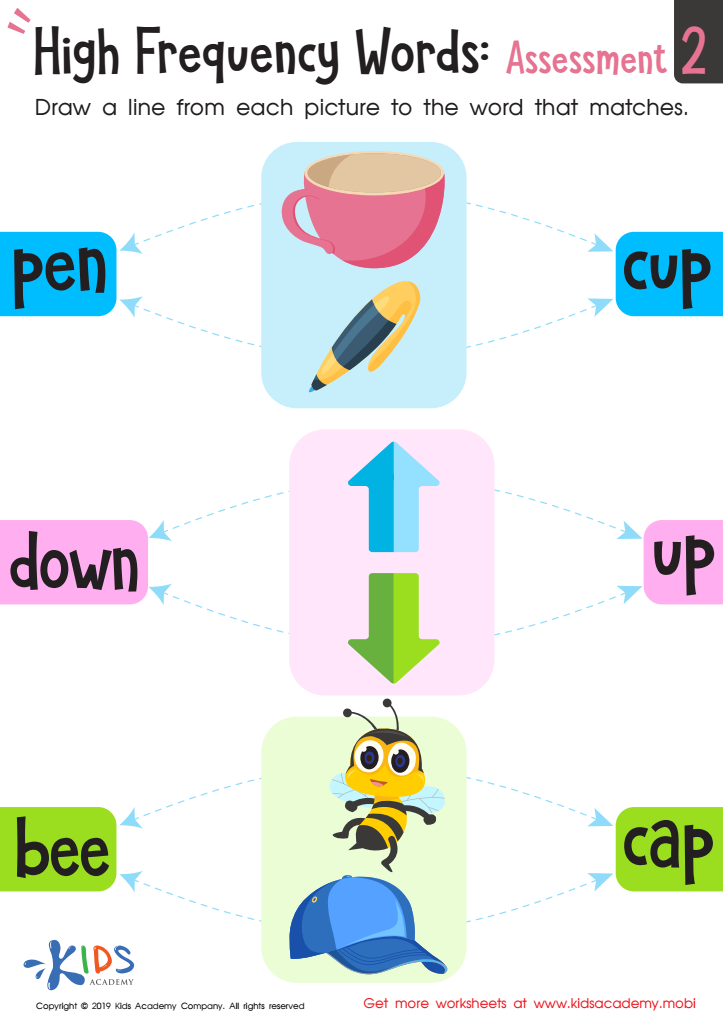

High Frequency Words: Assessment 2 Worksheet
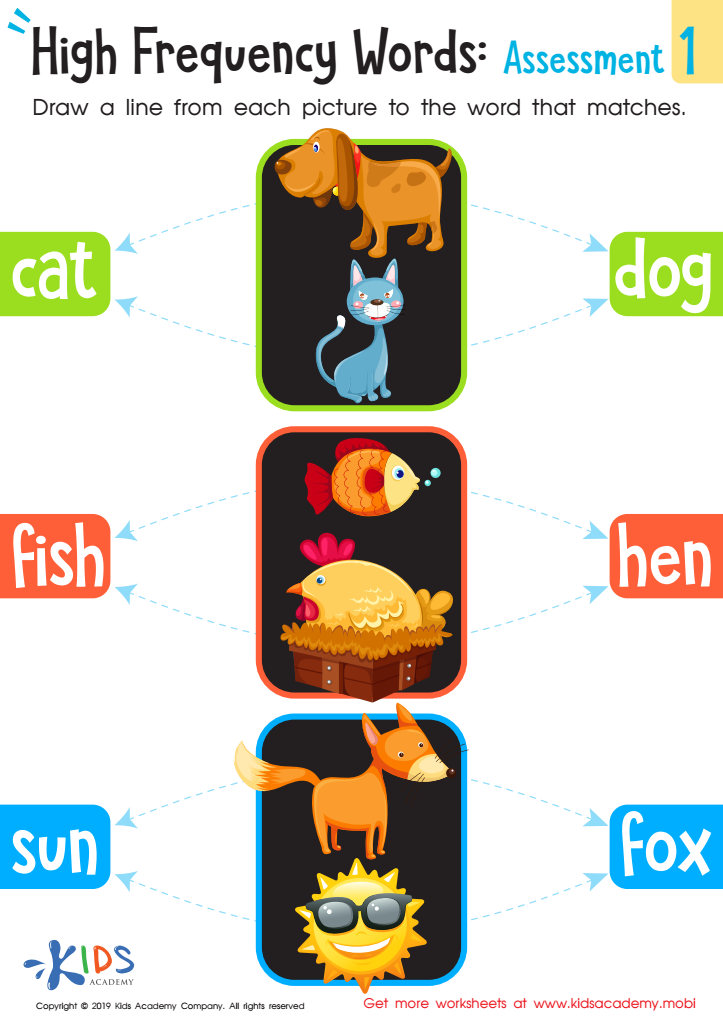

High Frequency Words: Assessment 1 Worksheet
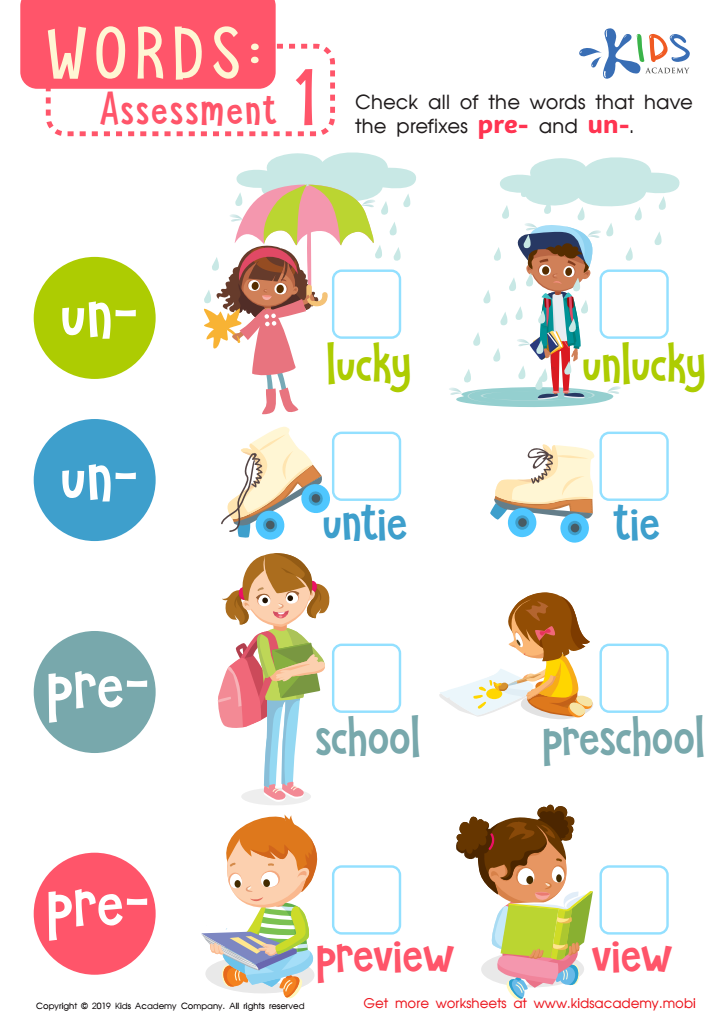

Words: Assessment 1 Worksheet
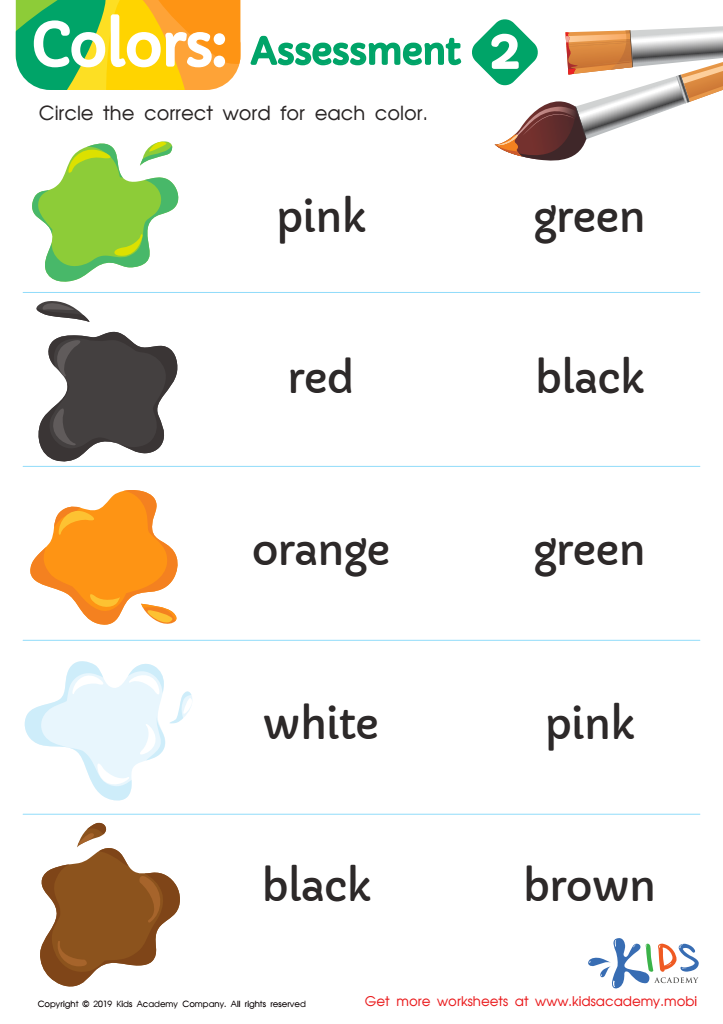

Colors: Assessment 2 Worksheet
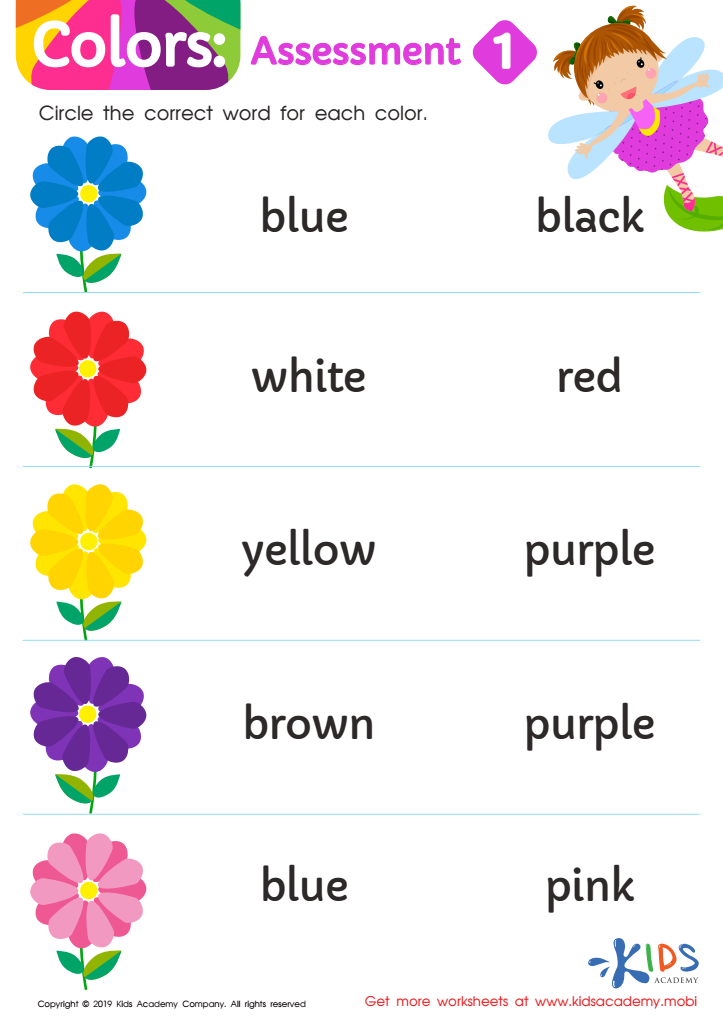

Colors: Assessment 1 Worksheet
Building vocabulary in early childhood is crucial for language development, literacy skills, and overall academic success. For children aged 5-8, effective vocabulary activities lay the groundwork for communication and critical thinking. Engaging in Easy Building Vocabulary activities enriches their language repertoire, allowing them to express thoughts and feelings more clearly.
Parents and teachers should prioritize these activities because a robust vocabulary positively impacts reading comprehension and writing fluency, essential skills as they progress through school. At this age, children are sponges, eager to absorb information; using fun and interactive activities, such as games, storytelling, and arts-and-crafts, makes learning enjoyable and memorable.
Furthermore, strong vocabulary skills foster confidence; kids are more likely to contribute during discussions and participate in collaborative tasks. Developing language skills helps bridge the gap between social interactions and academic learning, encouraging healthy relationships with peers and educators.
Investing time in vocabulary activities not only enhances a child’s current learning environment but also equips them with tools for lifelong success. By cultivating a love for words through playful engagement, parents and teachers help nurture curious, articulate, and confident individuals ready to navigate the complexities of the world around them.
 Assign to My Students
Assign to My Students






%20(1).jpg)










